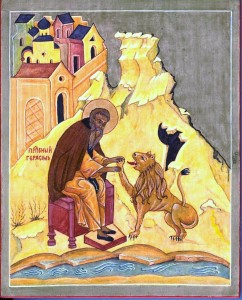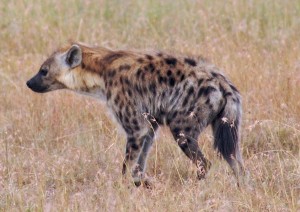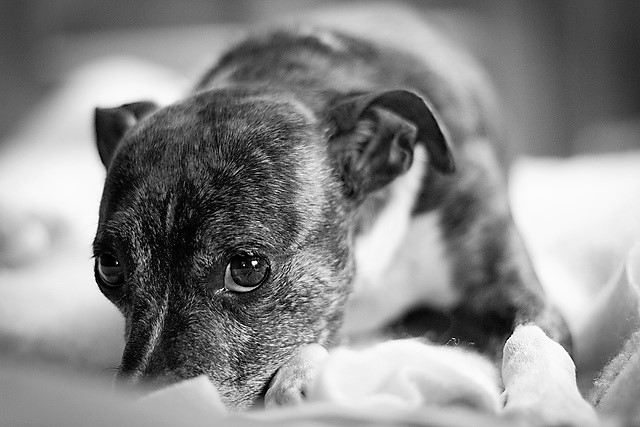David Clough, Professor of Theological Ethics at the University of Chester, argues that concern for animals is a fundamental aspect of Christian discipleship.
 Animals: Who Cares?
Animals: Who Cares?
Who cares? Sometimes it seems like no one does, based on how we treat them.
Who cares? Sometimes it seems like everyone, from the popularity of kitten pictures on Facebook, from how many people invest time, trouble, and money in companion animals, and giving to animals charities.
Who cares? Often it seems that it is secular animals groups that lead on animal issues, such as the RSPCA, or PETA, inspired by the atheistic utilitarianism of Peter Singer, or Tom Regan or Gary Francione’s animal rights theory.
So what about Christians? Well, there’s plenty of evidence of Christians caring about particular animals, just like everyone else, but animals are not prominent among current faith concerns. Few Christians seem to think of concern for animals as a faith issue. I think we tend to think of animals in the same category as soap operas, or Game of Thrones, or football, or your guilty pleasure of choice: we love them, but we don’t connect them to our faith, and don’t expect to hear about them in church. We confess faith in Jesus Christ, and we love animals, but we don’t often put the two together.
My diagnosis is that care among Christians for animals is therefore disenfranchised: it’s there, but we don’t think we have permission for it from our faith or the churches we belong to.
 Perhaps that’s what brings some of us here: feeling strongly that we need to be more concerned about treating animals well, but puzzled about how that fits with faith, and puzzled that other Christians don’t feel the same. For some people this disconnect puts them on the fringes of the church, or makes them give up on the church altogether: perhaps that’s you, or someone you know.
Perhaps that’s what brings some of us here: feeling strongly that we need to be more concerned about treating animals well, but puzzled about how that fits with faith, and puzzled that other Christians don’t feel the same. For some people this disconnect puts them on the fringes of the church, or makes them give up on the church altogether: perhaps that’s you, or someone you know.
And this situation seems very odd to me, because there are strong biblical and theological reasons to care about animals, and it’s clear that Christians in the past have seen concern for animals as belonging to their faith and acted in response.
I used to think I just happened to be a Christian who was concerned about animals. Now I think that it was my Christian upbringing that led me into feeling compassion for animals, and that concern for animals is a fundamental part of my Christian discipleship: there’s a connection both ways.
Christianity and animals: Making the Connection
So I think we need to reconnect Christian faith with concern for animals. I’ve spent most of the last ten years working on this in my academic life and won’t bore you with all of that now but here’s how I’d summarize the case that Christianity and concern for animals are strongly linked, that Christians have strong faith-based reasons to care about animals, and so that animals should feature more strongly in the concerns of our churches.
 1. Bible: The Bible gives us reason to believe that God cares for animals, that we should too, and that redemption is not just for humans. We see God as active in gracious provision for animals throughout the Bible, in texts on creation, providence, reconciliation, and redemption. The Bible’s identification of humans as image-bearing and dominion in Genesis 1 are reasons for showing this care to other animal creatures, not reasons against concern for animals.
1. Bible: The Bible gives us reason to believe that God cares for animals, that we should too, and that redemption is not just for humans. We see God as active in gracious provision for animals throughout the Bible, in texts on creation, providence, reconciliation, and redemption. The Bible’s identification of humans as image-bearing and dominion in Genesis 1 are reasons for showing this care to other animal creatures, not reasons against concern for animals.
2. Theology: Defending the goodness of creation was a mark of Christian orthodoxy from the first Christian centuries. It’s true that theologians sometimes found reasons to exclude non-human animals from moral concern, based on Greek and Roman ideas of a boundary between humans and other animals on the basis of reason, but we can recognize what’s wrong with their arguments, especially given modern discoveries about non-human animal intelligence.
3. Spirituality: Stories of the saints repeatedly make clear that concern for animals belongs to Christian holiness. including my favourite, told of St Macarius of Alexandria, an Egyptian hermit in the 4th century. The story goes that one day as Macarius was sitting in his cell he heard a knocking at his door. Thinking a fellow monk had come to see him, he opened the door and was astonished to find that a hyena had been knocking on the door with her head. She held her puppy in her mouth, and offered the puppy to him, weeping. Macarius took the puppy in his hands and looked to see what was the matter. He saw that the puppy was blind in both eyes. He took the puppy, groaned, spat on the puppy’s face and signed it on the eyes with his finger. Immediately, the puppy could see, ran to his mother, suckled from her, and followed her away. The next day the hyena returned and knocked on the hermit’s door again. This time when he opened it he saw she had a sheepskin in her mouth. He asked her where she had got the sheepskin, if she had not eaten a sheep, and told her that he would not take the sheepskin if it had come of violence. The hyena struck her head on the ground, bent her paws, and prayed on her knees for him to take it. He said he would not take it unless she promised not to harm the poor by eating their sheep, and she nodded her head as if she were promising him. Then he told her he would not take it unless she promised not to kill another creature, and said if she was hungry she should come to him and he would give her bread. The hyena bent, nodded, and looked him in the eye as if she were promising him. So Macarius offered praises to God for giving understanding to the animals and letting Macarius come to understand God’s ways. He took the sheepskin from the hyena and she went away. From time to time she would come to Macarius for food, and he would give her bread. He slept on the sheepskin until he died.
 This story of St Macarius combines the recognition that it belongs to Christian holiness to be friendly towards animals, a high view of the capacities of animals to be responsive subjects, and an appreciation that God’s will is for peace between all creatures. Together with many other examples from Helen Waddell’s wonderful collection Beasts and Saints (DLT, 1995), such as St Jerome’s hospitality to the lion, or St Godric’s protection of a stag from the Durham Prince Bishop’s hunt, it shows that Christians have long recognized that Christian holiness has implications well beyond the human realm.
This story of St Macarius combines the recognition that it belongs to Christian holiness to be friendly towards animals, a high view of the capacities of animals to be responsive subjects, and an appreciation that God’s will is for peace between all creatures. Together with many other examples from Helen Waddell’s wonderful collection Beasts and Saints (DLT, 1995), such as St Jerome’s hospitality to the lion, or St Godric’s protection of a stag from the Durham Prince Bishop’s hunt, it shows that Christians have long recognized that Christian holiness has implications well beyond the human realm.
4. History: Christians in England in the 19th century, alongside a prominent Jew, successfully lobbied for the first anti-cruelty legislation, and for the abolition of vivisection against the scientific establishment . This means that in the past, Christians led on campaigns for animal protection.
For all these reasons, we can see that Christians have strong faith-based reasons to seek the flourishing of all their fellow animal creatures.
C. Christianity and animals: who cares?
- Given the unprecedented cruelties we are currently inflicting on farmed animals in intensive systems, it seems to me urgent for Christians to reclaim the connection between concern for animals and Christian faith, and be in the vanguard of campaigns to resist production systems that have no regard for the flourishing of animals.
- If you’re one of those who shares this view, I think we need to get together to take out this conversation to our sisters and brothers in Christ.
- That’s why I founded CreatureKind a year ago: which is a new Christian organisation seeking to engage Christians with farmed animal welfare as a faith concern.
- We’ve got some great ideas for how to do this.
(a). We’re working on a programme to get Christian institutions to set targets to reduce consumption of animal products and move to higher welfare sourcing of remaining products, which will mean significant numbers of animals will not be raised in intensive conditions. The University of Winchester was the first institution to sign up with us in November and we are in the process of recruiting more.
(b). We’ve developed a website, blog, and social media platforms to help Christians make the connection between their faith and concern for animals. Find ‘becreaturekind’ on Facebook and Twitter to follow our updates, and visit our website to sign up for our email newsletter.
(c). And today, we’re launching a new, free, six-week course for churches that introduces Christians to the place of animals in Christian faith, how we’re currently treating farmed animals, and asks them to reflect on an appropriate Christian response. We need your help to run it in your church.
Animals: who cares?
The answer is we do, all of us gathered here today, and so do many of our fellow Christians. Now is the time to help people make connections between their faith and their concern for animals, in order to respond to the urgent challenge of the cruelties we are inflicting on farmed animals. The stands at the conference today reflect the many other organizations alongside CreatureKind seeking to take forward this work. So let’s talk, and let’s reflect together on how to act to take the energy in this room out to the church at large. Let’s make Christianity good news for animals!
David Clough is Professor of Theological Ethics, University of Chester, President of the Society for the Study of Christian Ethics, Founder of CreatureKind, and Methodist lay preacher.




